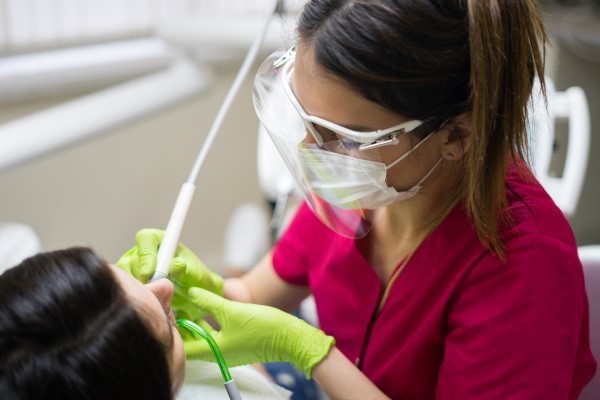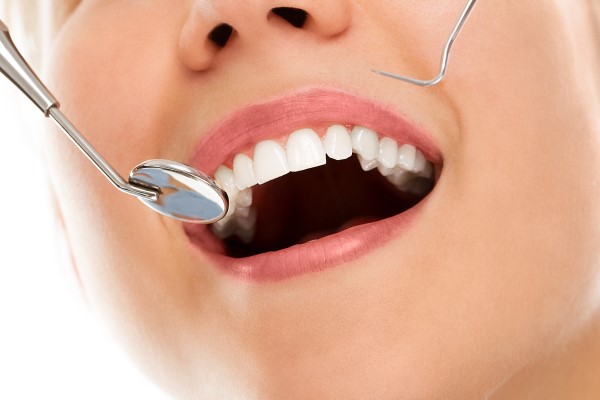FAQs About the Deep Teeth Cleaning Procedure

Deep teeth cleaning is a more advanced type of dental cleaning that involves cleaning teeth and their roots. The patient’s gums are pulled back to expose their teeth roots so a dentist can remove tartar and plaque.
The procedure protects patients against the two most common dental issues: gum disease and tooth decay. It is typically used as a treatment for gum disease. The first stage, called gingivitis, can be reversed with deep teeth cleaning, and the advanced stage, periodontitis, can be controlled and managed with this type of cleaning. A deep cleaning helps preserve a patient’s bone structures and gum tissues when they have been diagnosed with advanced gum disease.
Frequently asked questions about deep teeth cleaning
Patients may have questions about the deep cleaning procedure. Let us take a look at the answers to commonly asked questions.
1. Are deep cleanings necessary when patients have been diagnosed with gum disease?
Deep teeth cleanings are a must when dealing with advanced gum disease. It helps manage the condition, and it can help prevent the loss of teeth and their structures. Patients with gingivitis do not always have to get deep cleanings because regular cleanings and a renewed commitment to practicing good oral hygiene can be enough to reverse the condition. Still, a dentist might recommend deep cleaning for gingivitis if they have concerns about the patient being committed to taking better care of their teeth.
2. Do patients feel pain during the procedure?
Patients do not feel much pain during deep cleaning because they are given a shot of a local anesthetic, so the patient does not feel anything as the dentist works. If they do, another shot of an anesthetic might be administered until the area is numb. Deep cleanings involve manipulating the patient’s gum tissues, so they might be sore and tender for a few days.
3. Is the procedure covered by insurance providers?
Deep cleanings are classified as a basic dental procedure. They are typically covered by most insurance providers as long as they are being used to treat gum disease.
4. Is the procedure safe?
Yes, deep cleanings have a high success rate, and the risk of complications developing after the treatment is low. The most common complaints that people who undergo root scaling and planing have are increased tooth sensitivity and tender gums. The procedure should only be performed by an appropriately trained oral professional because executing it improperly can lead to teeth roots being damaged.
5. Do teeth cleanings make teeth loose?
No, but a patient might feel like their teeth have been loosened. This is because plaque and tartar buildup in gum pockets can help hold teeth in place. Removing the plaque and tartar surrounding teeth roots only eliminates this false stability. Loose teeth can be addressed by using a split to prevent them from moving. Over time, the teeth’s roots will re-fuse with the bone tissues around them, restoring the teeth’s stability.
Protect your mouth from gum disease
Deep cleaning treatments are the first line of defense against gum disease. Call or visit our Normal clinic to learn more about the procedure.
Request an appointment here: https://voguedental.com or call Vogue Dental at (309) 449-8888 for an appointment in our Normal office.
Check out what others are saying about our dental services on Yelp: Dental Cleaning and Examinations in Normal, IL.
Recent Posts
A check-up and dental cleaning is the most common reason that patients visit the dentist. It is also the best way to help prevent the development of oral health concerns such as cavities and periodontal disease. The following review highlights what happens at a check-up and dental cleaning visit to help you physically and mentally…
Usually, a regular dental exam is enough to identify problems with a patient’s teeth. Sometimes, a more thorough examination is called for. A regular dental checkup examines the surface of the teeth and gums. A complete dental exam goes deeper, including X-rays, cancer screening, and other in-depth tests.Like a regular checkup, a complete dental exam…
When was your last dental checkup? Read on to learn more about the importance of regular dental care visits. A dental checkup visit with a dentist is a great way to detect the early signs of any oral health concerns and put together a restorative plan (if necessary) before the concerns worsen. Regular dental checkups…
General dentistry is crucial for people of all ages. Young patients have particular need of dental care. School-aged children are prone to developing tooth decay and having gum disease. As a parent, if you neglect to take your son or daughter to the dentist for regular appointments, their oral health can suffer. You should prioritize…


